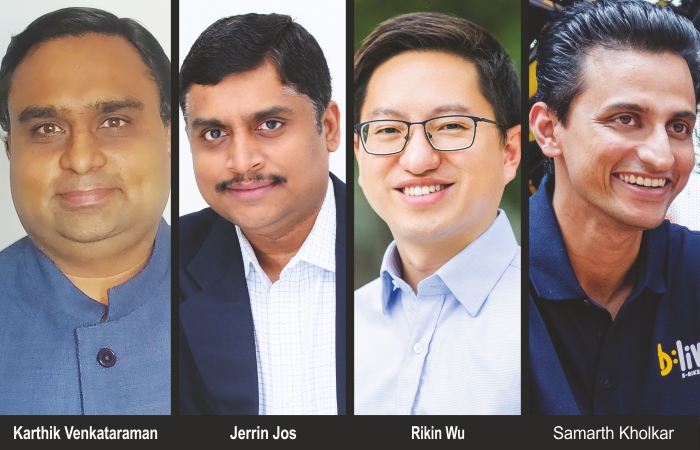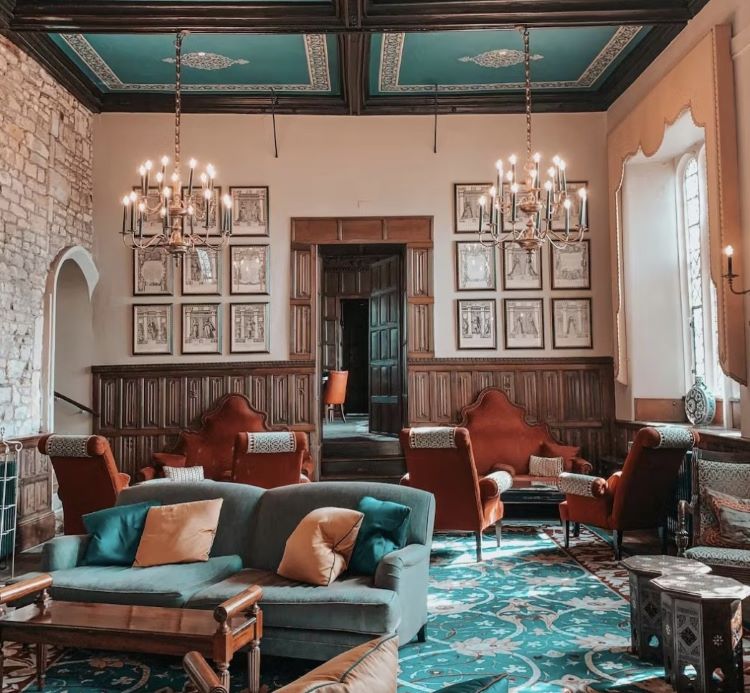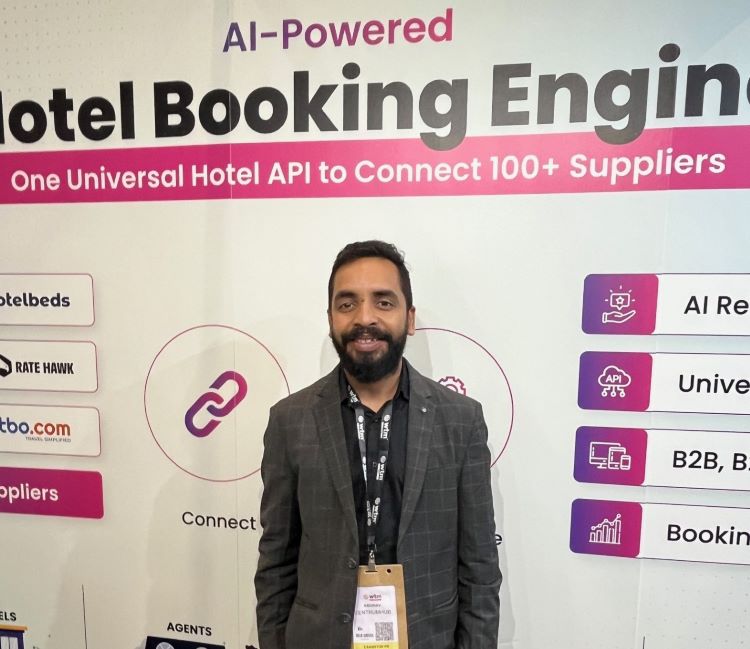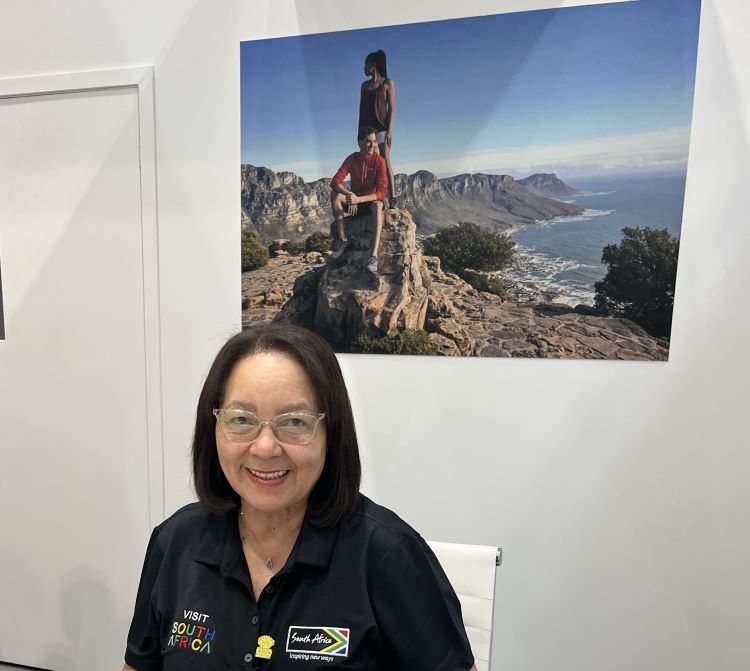Creativity and ingenuity can often shine through when we least expect it. Despite the turmoil that our industry has been witnessing, we are seeing many start-ups being conceived and often take centrestage. Can we learn a few tricks of the trade from them? We put a spotlight on four of them.
Hazel Jain
Karthik Venkataraman, CEO & Co-Founder, Sublimis Technologies
What is it?
Brahmaandis a technology start-up co-founded by four individuals. It is an end-to-end travel booking platform that makes various processes, components, services and systems come together through real-time integration, giving users the ultimate holiday booking experience. It is for B2B as it only offersits platform – the partner can use it for either B2B or B2C or B2B2N. The platform is vertical agnostic. It enables all kinds of package options for a holiday business and offers an end-to-end capability to manage inventory and distribution, with advanced loading capabilities to manage any type of product, including accommodation, flights, rail, bus, cruise, car hire, transfers, insurance, tours, excursions, tickets, activities, etc.
‘Technology is an enabler’
How important is technology in today’s tourism business?
Technology is the backbone of the tourism business today. With the pandemic, lots of businesses globally are feeling the heat and they have realized the need for using technology as an enabler. Technology not only scales their business but also help control operating costs. All mundane jobs should be automated, and people to focus on core business and exceptions.
Was it tough to get funding for a travel start-up?
We are currently boot-strapped as our priority was to launch both our platforms in the market. With companies now understanding the need for automation and using technology across most of their functions, both our platforms has received good response. Getting funding is always a challenge, especially in the current scenario. It is a matter of being patient and believing in the vision.
How are you planning to reach out to the travel agents and tour operators?
Our distribution strategy to reach our target clients comprises using our own BD team and resellers for global markets. We also have partnerships with some technology service providers outside of India and will be leveraging the same.
Jerrin Jos. Founder and CEO of Verteil Technologies
What is it?
Incorporated in 2016 in Kochi, Verteil is driving technology transformation in the airline distribution space. Thanks to the launch of NDC standards by IATA in 2015, Verteil is disrupting this multi-billion-dollar industry by allowing airlines to distribute its content directly to travel agencies through its airline distribution and retailing platform. Using Verteil’s universal API, travel companies can directly plug into reservation systems of the airlines and pull rich content of products, offers and extra services which were hitherto not available in the legacy platforms.
‘Adopting tech platforms paramount’
How important is technology in today’s tourism business?
Having the right technology in place is essential for travel companies to reshape their business model as the need arises. Moreover, consumer habits are pushing new tech norms in air ticketing. It is therefore absolutely paramount for companies to adopt technology platforms that can fulfil such expectations related to real time updates, personalised offers, etc. It is in this context, that IATA backed NDC program finds relevance. With the current situation, the relevance of NDC has increased considerably. We are in the driver’s seat now helping airlines and travel companies adopt NDC technology to create a superior supply chain technology. Without doubt, this technology transformation will enable travel companies to adapt to the changing times.
What challenges did you face while procuring funding?
Obtaining sufficient funding is the biggest challenge for a start-up, especially for a first time entrepreneur. From the start, we have been fortunate to be working with investors who have endorsed our business plan and see value in the industry transformation that we are helping to drive. Even getting leads to investors for evaluating a start up’s business plan and potential at an early phase is quite a challenge especially in this part of the world. Another challenge is to get access to investors. Specific to travel domain, investors were hesitant to put money in travel tech especially during the initial phase of the pandemic.
Rikin Wu, Founder and CEO, DidaTravel
What is it?
Established in 2012, DidaTravel is a global hotel wholesaler based in China. Its hotel resource consists of more than 30,000 direct contract hotels, covering more than 200 countries. It recently raised‘hundreds of millions of yuan’funding with Alibabaas the lead investor.
‘Start-ups need to have confidence’
How did you manage to acquire another round of funding, especially during these times?
DidaTravel is one of the best companies in Global Hotel distribution industry, with a perfect layout in the supply chain and distribution channels. We have become the most trusted partner of each leading players in major markets, and our brand influence and value are obvious to all in the industry. In addition, DidaTravel has carried out its globalization strategy earlier than all of its Chinese competitors, we already have resources and distribution channels all over the world. Driven by this, we seized the opportunity in the post-pandemic recovery of domestic tourism under the normal state of COVID-19 epidemic prevention and control. As a result, it managed to significantly reduce the pandemic impacts on its business and ensure steady development. We has tremendous value and growth opportunities despite the downturn in our industry. Our strategy is also a good match for the strategy and vision of our new shareholders, at the same time, based on years of steady development and a promising future, this investment is natural fit.
What advice would you give other start-ups in travel right now?
First of all, you need to have confidence, because people’s demand for travel will not disappear, and we always believe that the tourism industry will recover and enjoy greater development. Secondly, we should persist in doing valuable things. DidaTravel always adheres to the mission of “empowering the business of our tourism partners” to create value for partners, and insists on promoting the globalization strategy, so that the enterprise can make steady progress without being affected.
Samarth Kholkar, CEO and Co-founder, BLive
What is it?
BLive is a travel tech platform that offers immersive experiential tours powered by smart electric bikes. It allows tourists to experience unexplored spots through tours that are powered by electric bicycles and scooters. In 2020, despite the impact of the pandemic, BLive crossed 10,000 e-bike tours and has launched operations in 15 locations across nine states, largely driven by the increase in domestic tourism post-pandemic, as well as its sustainable tourism model of promoting environment-friendly tours. BLive tours encourage small scale businesses among other things.
‘We leverage technology to the maximum’
How important is technology in today’s tourism business?
BLive is an Electric Vehicle(EV) Experience Platform and we conduct immersive experiences on electric bikes. EVs are growing across the world and we wanted to introduce the same to India and make tourism here more sustainable. For us, every part of consumer experience is by leveraging technology to the maximum – whether it is for acquiring customers online by deploying smart digital strategies or to manage our customised e-bikes through an integrated back-end system which helps track the bikes, reduce downtime and makes asset allocation more efficient. We are also set to introduce AI/VR capabilities as part of the tour, which will make the experience more engaging. Our e-bikes are also smart e-bikes, which help us track their movement.
What challenges did you face while procuring funding?
Fund-raising is never easy regardless of the sector that you are in. It all comes down to the basics and the key parameters that investors look at, which is market opportunity, scalability and uniqueness of the offering. In all parameters, our offering met the criteria set by the investors, and we were able to secure the investment from individual investors and renowned angel networks. One of the key concerns with regards to tourism business is the seasonality and how we would counter the same.
 TravTalk India Online Magazine
TravTalk India Online Magazine





